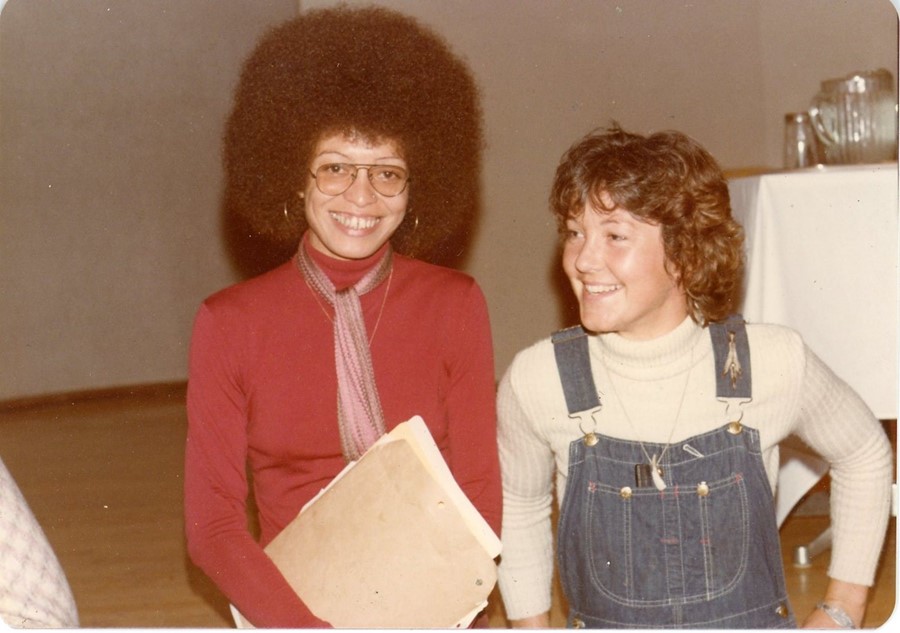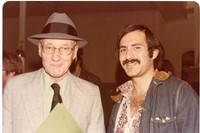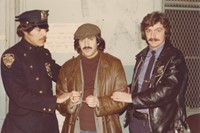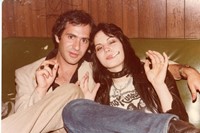Patti Smith, Susan Sontag, Debbie Harry and the Ramones all featured in Marc H. Miller and Bettie Ringma’s era-defining pop cultural project
In the mid-70s, the term “paparazzi” was beginning to seep into the cultural consciousness through a dazzling combination of art and life. While Federico Fellini's 1961 film La Dolce Vita introduced the word “paparazzi” (Italian for “mosquito”), it was not until American photographer Ron Galella showed the world just what a paparazzo was willing to do to get the shot that it truly become part of everyday parlance; in 1973, Marlon Brando broke his jaw with a single punch; one year later Jackie Onassis sued him, managing to secure an order of protection that did not stop Galella from getting his most famous image.
Intrigued by this new phenomenon coming into its own, American artist Marc H. Miller and Dutch artist Bettie Ringma started making Paparazzi Self-Portraits in 1975. Here, they posed for snapshots alongside personal heroes including Angela Davis, Susan Sontag, William S. Burroughs, and Patti Smith, as well as bands from the emerging punk scene at CBGB including Talking Heads, the Dead Boys, and Richard Hell and the Voidoids.
The project reached new heights in 1978 when Curt Hoppe, their downstairs neighbor, offered to create a large format photorealistic painting of Ringma with the Ramones, which was unveiled in Punk Art, the first exhibition to showcase the visual artists of the scene. Miller looks back at the sweet spot where pop culture and conceptual art met, and pays tribute to Ringma, who died on March 8 of this year.
On getting in the shot...
“I was a conceptual artist doing interactive art. I enjoyed that type of intrusive photography rooted in popular media and personalities. To throw yourself into the picture was a mix of self-portraiture, performance art, and appropriation of paparazzi pictures – a genre of photography that could be equated with Pop Art.”
On making the scene...
“One day Bettie and I were walking by CBGB. It looked interesting so we walked in. Patti Smith happened to be at the bar and we got a picture with her and Bettie right away. Then we talked to CBGB owner Hilly Kristal and showed him what we were doing. He walked over to Roberta Bayley, who was at the door, and said, ‘Let them in free.’
“We kept going back, building up a collection with Bettie with all the different groups. In our minds, this was art about art. We always thought they were making broader statements about how photos could lie about time and space. It was also about commodity, branding, and making them available at a populist price: $1 a print.”
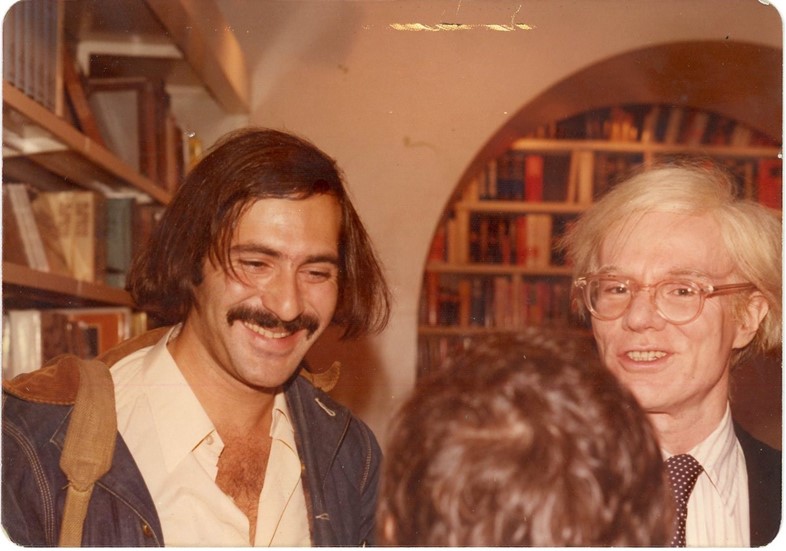
On going to new heights...
“What separates us from all the other selfie pioneers like Jean Pigozzi and Maripol are the painting collaborations with Curt Hoppe. We had been selling them as 3 x 5 inch prints and he made this 4 x 6 foot painting. It took him three months to complete. Curt is a first-rate photorealist, so people often think it’s a photograph. It’s a false image that has gotten to grand size.”
On being a social butterfly...
“Bettie had the ability to blend in very quickly in a lot of the photos. Looking at Curt’s painting of Bettie with the Ramones, Village Voice music critic Robert Chrisgau talked about how it looked so natural that he thought he had missed the moment when the Ramones were a quintet.
“Paparazzi Self-Portraits worked very well for Bettie. She was social, she could make anyone feel comfortable, and she had no fear of rejection. Just like I got my heroes like Warhol, William Burroughs, and John Cage, Bettie was very insistent on getting pictures of women like Angela Davis, Bella Abzug, and Susan Sontag. She spent her whole life taking pictures right up to her death. She went out in style.”
